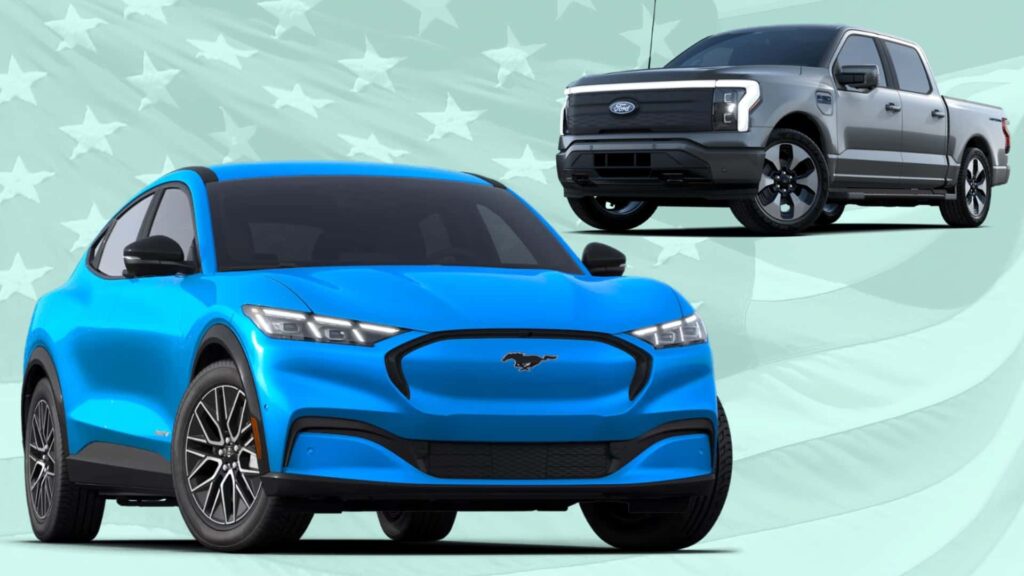Ford has had a strong start to the year in terms of electrified vehicle sales in the U.S. In the first quarter, the automaker sold a total of 73,623 electrified models, representing a 26% year-over-year growth. This surge in sales is a positive sign for Ford’s commitment to expanding its electrified vehicle lineup.
One of the standout performers for Ford in the first quarter was the Mustang Mach-E, which saw a 12% increase in sales compared to the previous year. The Mustang Mach-E outsold the gas-powered Mustang and every Lincoln model in the lineup. With 11,607 units sold, the Mach-E continues to be a popular choice among buyers looking for an electric vehicle with performance and style.
Another notable performer for Ford was the E-Transit electric van, which saw a nearly 30% increase in sales, reaching 3,756 units sold. However, the F-150 Lightning, Ford’s electric pickup truck, did not perform as well, with only 7,187 units sold so far this year, representing a 7.1% drop in sales.
In comparison to Ford, General Motors saw strong growth in sales of its electric vehicles, particularly the Chevy Silverado EV, which saw a 125% increase in sales to 2,383 units. General Motors also recently launched cheaper versions of the 2026 Sierra EV, positioning itself as a strong contender in the electric truck market.
Despite the positive momentum in electrified vehicle sales, Ford’s progress could be hindered by President Trump’s 25% tariffs on imported cars and auto parts, which went into effect recently. These tariffs could significantly impact the cost of Ford’s vehicles, especially those that rely on imported parts or components.
Looking ahead, Ford is set to release the 2025 Mustang Mach-E with improved range and more features, which could further boost sales of the popular electric SUV. However, the impact of the tariffs on pricing remains a concern for the automaker and could potentially affect consumer demand for Ford’s electrified models in the future. Ford has long been a staple in American automotive manufacturing, with many of its cars being assembled in the U.S. However, a recent report from the National Highway Traffic Safety Administration revealed that despite being assembled domestically, all Ford vehicles receive over half of their parts content from overseas, with Mexico being the primary source.
This revelation sheds light on the intricate global supply chain that is involved in producing vehicles, even those that are considered to be American-made. The report also highlighted that a staggering 78% of the parts used in the production of the Mustang Mach-E, Ford’s popular electric crossover, are sourced from Mexico, where the vehicle is also assembled.
The reliance on international suppliers for parts is not unique to Ford, as many other automotive manufacturers also source components from various countries around the world. While this practice may help reduce production costs and increase efficiency, it also underscores the interconnected nature of the global economy and the importance of international trade relationships in the automotive industry.
Despite the high percentage of parts sourced from overseas, Ford remains committed to supporting American manufacturing and creating jobs in the U.S. The company has invested billions of dollars in domestic production facilities and continues to prioritize the use of American-made components wherever possible.
As the automotive industry continues to evolve and adapt to changing consumer preferences and technological advancements, the reliance on international suppliers for parts is likely to remain a key component of the manufacturing process. Ford’s ability to navigate the complexities of the global supply chain while maintaining its commitment to American manufacturing is a testament to the company’s resilience and adaptability in an increasingly interconnected world.

